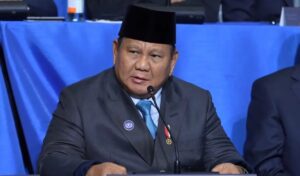Indonesia Nears Rice Self-Sufficiency as Production Surges

Jakarta, The Gulf Observer: Minister of Agriculture Andi Amran Sulaiman on Friday expressed strong optimism that Indonesia is on the cusp of achieving rice self-sufficiency, citing record-breaking production gains that reinforce national food sovereignty.
“God willing, within the next three months, if there are no major obstacles, we will be able to declare that Indonesia has achieved rice self-sufficiency,” Sulaiman said in Jakarta.
The minister highlighted ongoing government initiatives such as the development of new rice fields, rehabilitation of irrigation systems, and measures to improve farmer welfare. He stressed that with current stock levels, Indonesia is unlikely to rely on rice imports this year. “God willing, with sufficient stock, there will be no rice imports this year,” he affirmed.
According to Statistics Indonesia (BPS), national rice production from January to November 2025 is estimated at 33.19 million tons, a 12.62 percent increase compared to 29.47 million tons in the same period of 2024. This marks the country’s highest rice output in seven years, surpassing the previous record of 31.54 million tons in 2022.
BPS Deputy for Production Statistics M. Habibullah noted that the production boost strengthens both food security and price stability. “With rice production projected to exceed 33 million tons, the availability of our staple food is increasingly secure. Rice is no longer a driver of inflation but rather a stabilizer of prices and purchasing power,” he said at a press briefing in Jakarta on Wednesday.
Indonesia’s achievements are also approaching international projections. The US Department of Agriculture (USDA) has estimated Indonesia’s rice output at 34.6 million tons in 2025, while the Food and Agriculture Organization (FAO) projects up to 35.6 million tons for the 2025/2026 planting season — placing Indonesia firmly on track toward full rice self-sufficiency.
If realized, this milestone would mark a significant achievement for Southeast Asia’s largest economy, reducing reliance on imports and reinforcing its resilience against global food supply disruptions.


